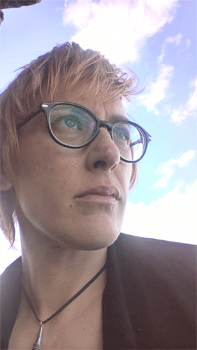Rebecca Hepatitis C Interview

Rebecca Hepatitis C Interview
Australia is on track to achieve hepatitis C (hep C) elimination within 10 years, having treated a record number of 30,000 people in 2016.
This is according to a new report which coincides with the availability of the latest hep C treatment, Zepatier, on the Pharmaceutical Benefits Scheme (PBS).
For more, please see: www.hepcmediakit.org
Interview with Rebecca, 34 Community volunteer and recovered drug addict who lived with hepatitis C
Question: When were you diagnosed with hepatitis C?
Rebecca: I was 18 years old when it showed up in a blood test.
Question: Can you talk about your symptoms?
Rebecca: None at first, nothing for quite some time really then the tiredness hit. I started to become easily frustrated and quick to anger as well. Brain fog is apparently the recognised term for it now and is seen as a long term hep c symptom. I also had troubles if I drank alcohol or ate fatty/spicy food.
Question: How did you treat the symptoms associated with hepatitis C?
Rebecca: Being an injecting drug user I found it hard to find information on managing hepatitis long term. I just took it in my stride and treated any symptoms as they came up. That and common sense things such as regular exercise, drinking plenty of water, eating well and keeping away from alcohol and fatty foods.
Rebecca: Until symptoms began making life difficult nothing much changed as it's a silent disease. I started to become a little paranoid about exposing anyone else to my blood, a hard task while I was still using drugs! I remember screaming hysterically at a flatmate to keep away after a kitchen mishap and feeling dirty and ashamed of the disease. It became my little secret really, a tough secret to keep.
Question: Can you talk about the importance of Zepatier on the Pharmaceutical Benefits Scheme?
Rebecca: It is amazing Australia is now able to offer these new Direct Action Antiviral treatments for genotypes 1,2,3 and now with Zepatier type 4 at a manageable cost to the consumer! Type 4 has been quite resistant to previous treatments so having such a well-tolerated drug with a short length of treatment time available compared to older more physically and emotionally taxing treatment is amazing.
Question: What advice do you have for those recently diagnosed with hepatitis C?
Rebecca: That it is definitely NOT a life sentence and that treating hepatitis C is now simple than ever. I remember feeling alone, confused as to what was wrong with me and bring scared I was going to get very sick. I found help through TASCAHRD, Tasmanian Council on AIDS Hepatitis and Related Diseases and my peers. There are similar organisations in each state and territory. Also keep in touch with your GP for monitoring and to access the new DAA treatments.
Question: Can you tell us about your volunteering in the community?
Rebecca: I am active in consumer engagement in the alcohol and other drug sector as well as speaking publicly about my recent success with hep C treatment. My main passion though is drug user's rights. I am a board member of TUHSL, Tasmanian Users Health and Support League, a peer based drug user organisation whose main aims are to reduce stigma and discrimination associated with drug use, to provide information and support and to reduce transmission and harms of all blood borne viruses, especially hep C as Tassie has a very high rate of infection per capita. We are currently seeking to broaden our objectives but obtaining funding has been difficult yet it is an important fight. Tasmania is also the only state without a highly active user organisation so we are trying to rectify this.
Interview by Brooke Hunter
MORE
- Is Your Dad at Risk of Type 2 Diabetes?
- Australian-First Trial Examining Physical and...
- Dr Suzan Bekir Rosacea Treatment Interview
- Rebecca Hepatitis C Interview
- Cheryl Talent Eczema Awareness Month Interview
- Dee Honeychurch Paediatric Stroke Awareness...
- Have You Planned Your Heart Attack
- Sally Carkeet Living with Rheumatoid Arthritis...
- Managing Eczema Flare-Ups This Spring
- Rheumatoid Arthritis



